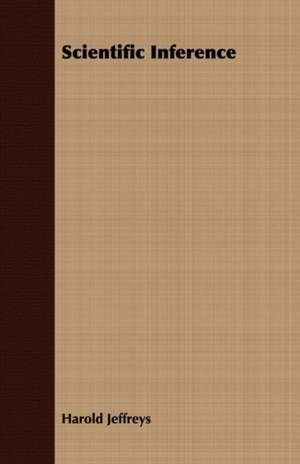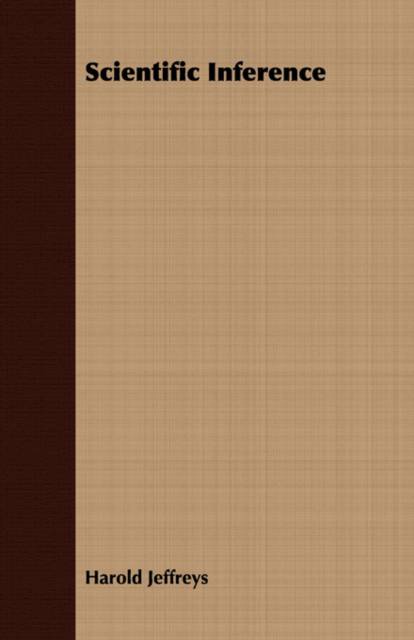
- Retrait gratuit dans votre magasin Club
- 7.000.000 titres dans notre catalogue
- Payer en toute sécurité
- Toujours un magasin près de chez vous
- Retrait gratuit dans votre magasin Club
- 7.000.0000 titres dans notre catalogue
- Payer en toute sécurité
- Toujours un magasin près de chez vous
Description
Originally published in 1931. The present work had its beginnings in a series of papers published jointly some years ago by Dr Dorothy Wrinch and myself. Both before and since that time several books purporting to give analyses of the principles of scientific inquiry have appeared, but it seems to me that none of them gives adequate attention to the chief guiding principle of both scientific and everyday knowledge that it is possible to learn from experience and to make inferences from it beyond the data directly known by sensation. Discussions from the philosophical and logical point of view have tended to the conclusion that this principle cannot be justified by logic alone, which is true, and have left it at that. In discussions by physicists, on the other hand, it hardly seems to be noticed that such a principle exists. In the present work the principle is frankly adopted as a primitive postulate and its consequences are developed. It is found to lead to an explanation and a justification of the high probabilities attached in practice to simple quantitative laws, and thereby to a recasting of the processes involved in description. As illustrations of the actual relations of scientific laws to experience it is shown how the sciences of mensuration and dynamics may be developed. I have been stimulated to an interest in the subject myself on account of the fact that in my work in the subjects of cosmogony and geophysics it has habitually been necessary to apply physical laws far beyond their original range of verification in both time and distance, and the problems involved in such extrapolation have therefore always been prominent. This is a high quality digital version of the original title, thus a few of the images may be slightly blurred and difficult to read.
Spécifications
Parties prenantes
- Auteur(s) :
- Editeur:
Contenu
- Nombre de pages :
- 280
- Langue:
- Anglais
Caractéristiques
- EAN:
- 9781406768787
- Date de parution :
- 20-09-07
- Format:
- Livre broché
- Format numérique:
- Trade paperback (VS)
- Dimensions :
- 140 mm x 216 mm
- Poids :
- 358 g

Les avis
Nous publions uniquement les avis qui respectent les conditions requises. Consultez nos conditions pour les avis.






